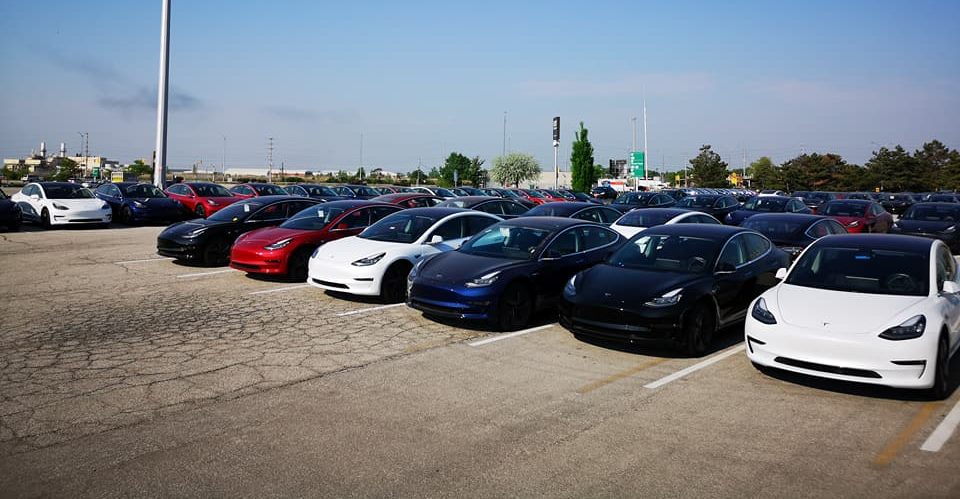
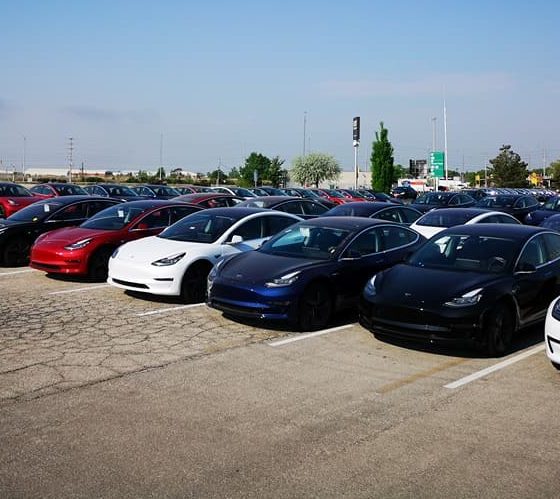
News
Tesla will be shipping 3k Model 3 to Europe every week by Feb 2019: report
Tesla’s global assault with the Model 3 is set to hit its stride next year, as the electric car maker starts rolling out the vehicle to territories beyond the United States and Canada. In Europe, Tesla has recently invited Model 3 reservation holders to configure their vehicles, with the company setting an estimated delivery date of February 2019 for orders of the Model 3 Performance and the Long Range AWD.
Reports have now emerged from local media that Tesla would be shipping 3,000 vehicles per week to Europe starting February 2019. Belgian news agency Focus-WTV, for one, stated that the electric cars would be arriving every week in the port of Zeebrugge, which is located on the coast of Belgium (special thanks to Tesla owner-enthusiast Hans Noordsij, who tipped Teslarati off about the Focus-WTV report). The local news outlet noted that the electric cars are shipped through the services of transportation firm International Car Operators (ICO), which operates a site on the Zeebrugge docks.
ICO’s operations are particularly notable as the company uses RoRo (roll-on, roll-off) ships, which are capable of loading and unloading cargo in a quick manner. The transportation of Tesla’s vehicles from the United States to Zeebrugge will reportedly take about 15 days, with the route going through the Panama Canal. Upon arriving at the coastal port, the electric cars would be distributed across Tesla’s delivery centers in Europe. ICO is reportedly investing 2.5 million euros ($2.83 million) to accommodate the influx of Tesla’s vehicles as well.
Elon Musk has noted that Tesla is now at a point where it is capable of producing 5,000 Model 3 per week without straining its facilities or its workforce. That said, reports have emerged stating that Tesla is already closing in on a pace equal to 1,000 Model 3 per day. This was mentioned by Pierre Ferragu of New Street Research, who noted that Tesla’s path towards higher production outputs seems to be clear. The Wall Street analyst even noted that Tesla is likely capable of hitting a pace equal to 7,000-10,000 Model 3 per week with limited CapEx.
“The road to 7,000 units per week seems easy, and limited capital expenditures will be required (in the low tens of millions) to get to 10,000. We don’t know for sure what demand will ultimately be, but we know that from here, Tesla will expand its price range, introduce leasing, and expand internationally. All these levers combined have a lot of depth and should be more than enough to get to 10,000 Model 3 per week at the end of next year,” Ferragu wrote.
With production of the Model 3 hitting sustainable levels, Tesla is now able to start preparing the vehicle for deliveries to foreign markets. Apart from Europe, Tesla has also opened the Model 3 configurator to reservation holders in China. The reception among Chinese electric car buyers has been notable so far, despite Tesla’s business in the country being weighed down by the 40% import tariffs placed on vehicles due to the US-China trade war. With recent reports stating that China will likely reduce import tariffs to just 15%, Tesla’s presence in the Chinese market would likely be even more notable in the coming quarters.
The Tesla Model 3 is a “bet-the-company” project, with Elon Musk putting the electric car maker’s future on the success of the electric sedan. Despite a trip through “production hell,” the Model 3 has been proving itself in the US market, ranking among the best-selling vehicles in the country over the past few months despite America’s preference for larger vehicles like SUVs and pickup trucks. In foreign territories, the Model 3 might actually have even more potential, with Tesla noting in its Q3 2018 Update Letter that the mid-sized premium sedan market in Europe is “more than twice as big as the same segment in the US.” With this in mind, the auto industry would likely soon come to terms with the notion that while the electric sedan is already making waves in the US and Canada, the Model 3’s real potential has not even been fully tapped yet.

Elon Musk
Tesla announces crazy new Full Self-Driving milestone
The number of miles traveled has contextual significance for two reasons: one being the milestone itself, and another being Tesla’s continuing progress toward 10 billion miles of training data to achieve what CEO Elon Musk says will be the threshold needed to achieve unsupervised self-driving.
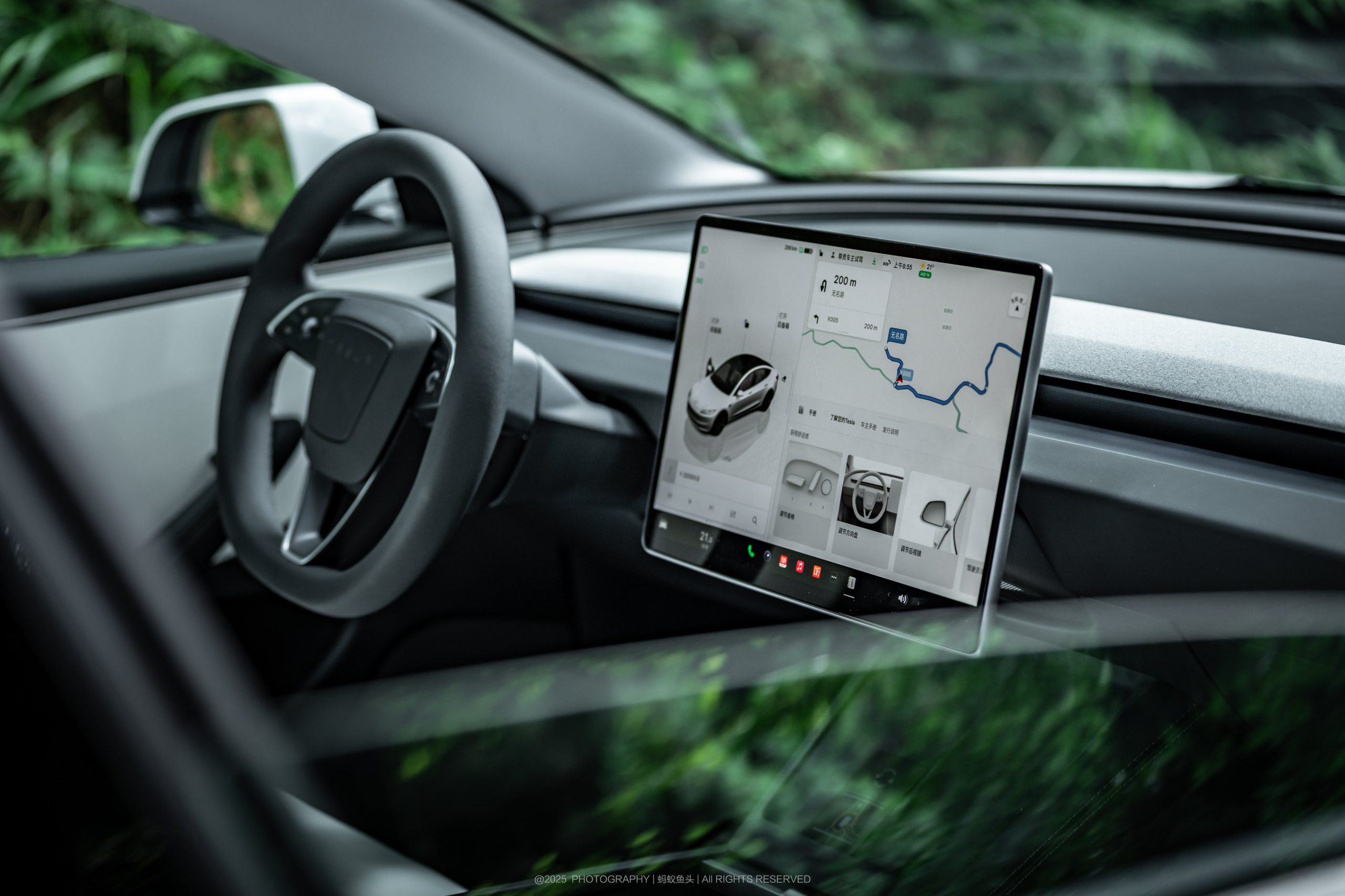
Tesla has announced a crazy new Full Self-Driving milestone, as it has officially confirmed drivers have surpassed over 8 billion miles traveled using the Full Self-Driving (Supervised) suite for semi-autonomous travel.
The FSD (Supervised) suite is one of the most robust on the market, and is among the safest from a data perspective available to the public.
On Wednesday, Tesla confirmed in a post on X that it has officially surpassed the 8 billion-mile mark, just a few months after reaching 7 billion cumulative miles, which was announced on December 27, 2025.
Tesla owners have now driven >8 billion miles on FSD Supervisedhttps://t.co/0d66ihRQTa pic.twitter.com/TXz9DqOQ8q
— Tesla (@Tesla) February 18, 2026
The number of miles traveled has contextual significance for two reasons: one being the milestone itself, and another being Tesla’s continuing progress toward 10 billion miles of training data to achieve what CEO Elon Musk says will be the threshold needed to achieve unsupervised self-driving.
The milestone itself is significant, especially considering Tesla has continued to gain valuable data from every mile traveled. However, the pace at which it is gathering these miles is getting faster.
Secondly, in January, Musk said the company would need “roughly 10 billion miles of training data” to achieve safe and unsupervised self-driving. “Reality has a super long tail of complexity,” Musk said.
Training data primarily means the fleet’s accumulated real-world miles that Tesla uses to train and improve its end-to-end AI models. This data captures the “long tail” — extremely rare, complex, or unpredictable situations that simulations alone cannot fully replicate at scale.
This is not the same as the total miles driven on Full Self-Driving, which is the 8 billion miles milestone that is being celebrated here.
The FSD-supervised miles contribute heavily to the training data, but the 10 billion figure is an estimate of the cumulative real-world exposure needed overall to push the system to human-level reliability.
News
Tesla Cybercab production begins: The end of car ownership as we know it?
While this could unlock unprecedented mobility abundance — cheaper rides, reduced congestion, freed-up urban space, and massive environmental gains — it risks massive job displacement in ride-hailing, taxi services, and related sectors, forcing society to confront whether the benefits of AI-driven autonomy will outweigh the human costs.
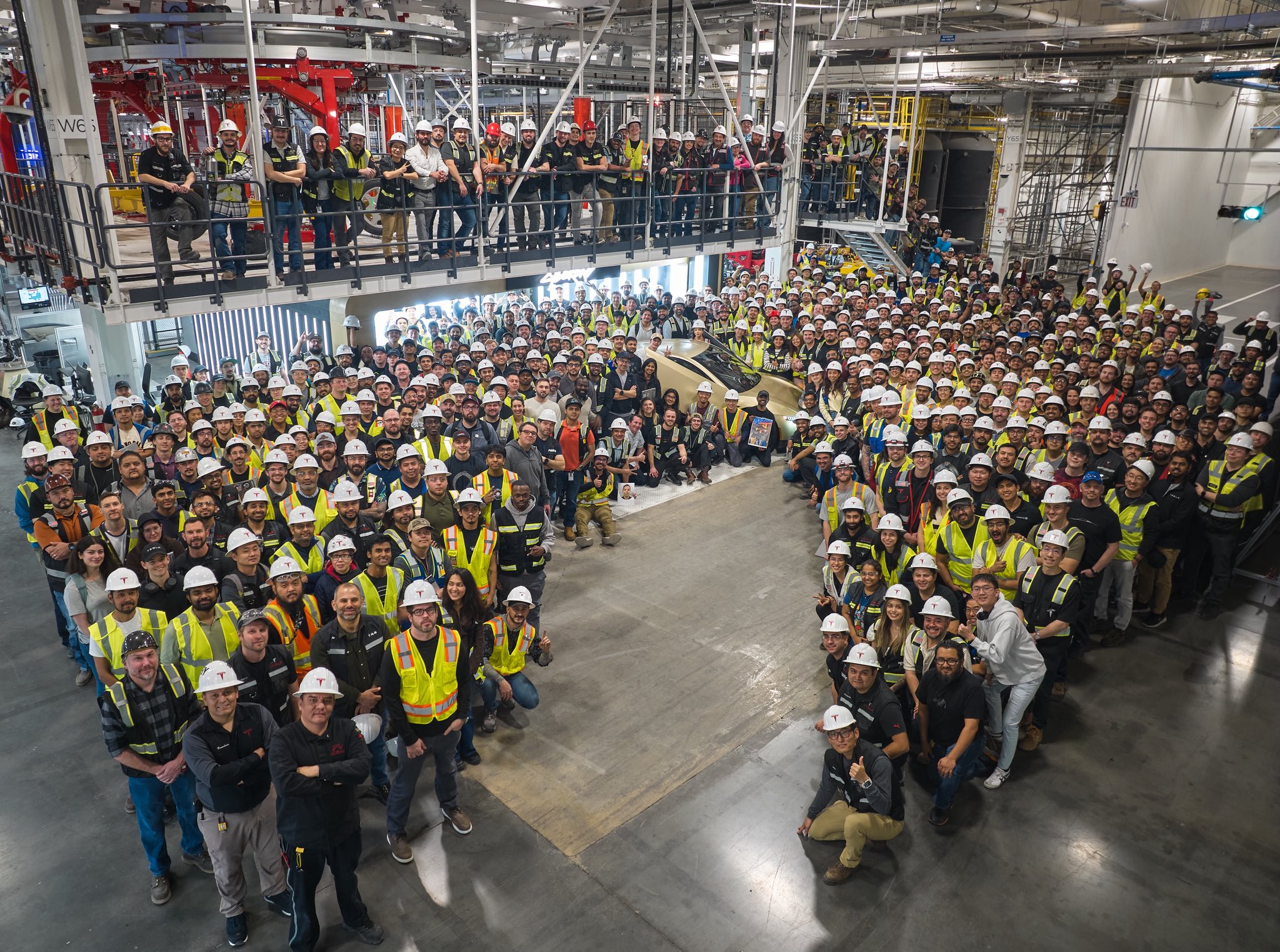
The first Tesla Cybercab rolled off of production lines at Gigafactory Texas yesterday, and it is more than just a simple manufacturing milestone for the company — it’s the opening salvo in a profound economic transformation.
Priced at under $30,000 with volume production slated for April, the steering-wheel-free, pedal-less Robotaxi-geared vehicle promises to make personal car ownership optional for many, slashing transportation costs to as little as $0.20 per mile through shared fleets and high utilization.
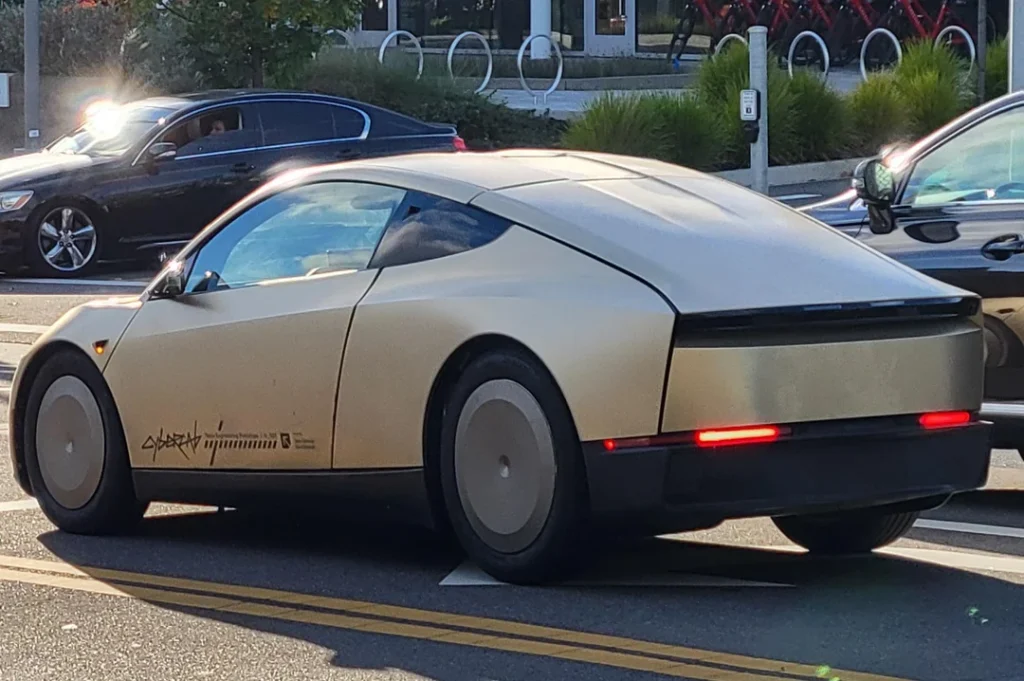
Credit: wudapig/Reddit< /a>
While this could unlock unprecedented mobility abundance — cheaper rides, reduced congestion, freed-up urban space, and massive environmental gains — it risks massive job displacement in ride-hailing, taxi services, and related sectors, forcing society to confront whether the benefits of AI-driven autonomy will outweigh the human costs.
Let’s examine the positives and negatives of what the Cybercab could mean for passenger transportation and vehicle ownership as we know it.
The Promise – A Radical Shift in Transportation Economics
Tesla has geared every portion of the Cybercab to be cheaper and more efficient. Even its design — a compact, two-seater, optimized for fleets and ride-sharing, the development of inductive charging, around 300 miles of range on a small battery, half the parts of the Model 3, and revolutionary “unboxed” manufacturing — is all geared toward rapid production.
Operating at a fraction of what today’s rideshare prices are, the Cybercab enables on-demand autonomy for a variety of people in a variety of situations.
Tesla ups Robotaxi fare price to another comical figure with service area expansion
It could also be the way people escape expensive and risky car ownership. Buying a vehicle requires expensive monthly commitments, including insurance and a payment if financed. It also immediately depreciates.
However, Cybercab could unlock potential profitability for owning a car by adding it to the Robotaxi network, enabling passive income. Cities could have parking lots repurposed into parks or housing, and emissions would drop as shared electric vehicles would outnumber gas cars (in time).
The first step of Tesla’s massive production efforts for the Cybercab could lead to millions of units annually, turning transportation into a utility like electricity — always available, cheap, and safe.
The Dark Side – Job Losses and Industry Upheaval
With Robotaxi and Cybercab, they present the same negatives as broadening AI — there’s a direct threat to the economy.
Uber, Lyft, and traditional taxis will rely on human drivers. Robotaxi will eliminate that labor cost, potentially displacing millions of jobs globally. In the U.S. alone, ride-hailing accounts for billions of miles of travel each year.
There are also potential ripple effects, as suppliers, mechanics, insurance adjusters, and even public transit could see reduced demand as shared autonomy grows. Past automation waves show job creation lags behind destruction, especially for lower-skilled workers.
Gig workers, like those who are seeking flexible income, face the brunt of this. Displaced drivers may struggle to retrain amid broader AI job shifts, as 2025 estimates bring between 50,000 and 300,000 layoffs tied to artificial intelligence.
It could also bring major changes to the overall competitive landscape. While Waymo and Uber have partnered, Tesla’s scale and lower costs could trigger a price war, squeezing incumbents and accelerating consolidation.
Balancing Act – Who Wins and Who Loses
There are two sides to this story, as there are with every other one.
The winners are consumers, Tesla investors, cities, and the environment. Consumers will see lower costs and safer mobility, while potentially alleviating themselves of awkward small talk in ride-sharing applications, a bigger complaint than one might think.
Elon Musk confirms Tesla Cybercab pricing and consumer release date
Tesla investors will be obvious winners, as the launch of self-driving rideshare programs on the company’s behalf will likely swell the company’s valuation and increase its share price.
Cities will have less traffic and parking needs, giving more room for housing or retail needs. Meanwhile, the environment will benefit from fewer tailpipes and more efficient fleets.
A Call for Thoughtful Transition
The Cybercab’s production debut forces us to weigh innovation against equity.
If Tesla delivers on its timeline and autonomy proves reliable, it could herald an era of abundant, affordable mobility that redefines urban life. But without proactive policies — retraining, safety nets, phased deployment — this revolution risks widening inequality and leaving millions behind.
Elon on the MKBHD bet, stating “Yes” to the question of whether Tesla would sell a Cybercab for $30k or less to a customer before 2027 https://t.co/sfTwSDXLUN
— TESLARATI (@Teslarati) February 17, 2026
The real question isn’t whether the Cybercab will disrupt — it’s already starting — it’s whether society is prepared for the economic earthquake it unleashes.
News
Tesla Model 3 wins Edmunds’ Best EV of 2026 award
The publication rated the Model 3 at an 8.1 out of 10, and with its most recent upgrades and changes, Edmunds says, “This is the best Model 3 yet.”
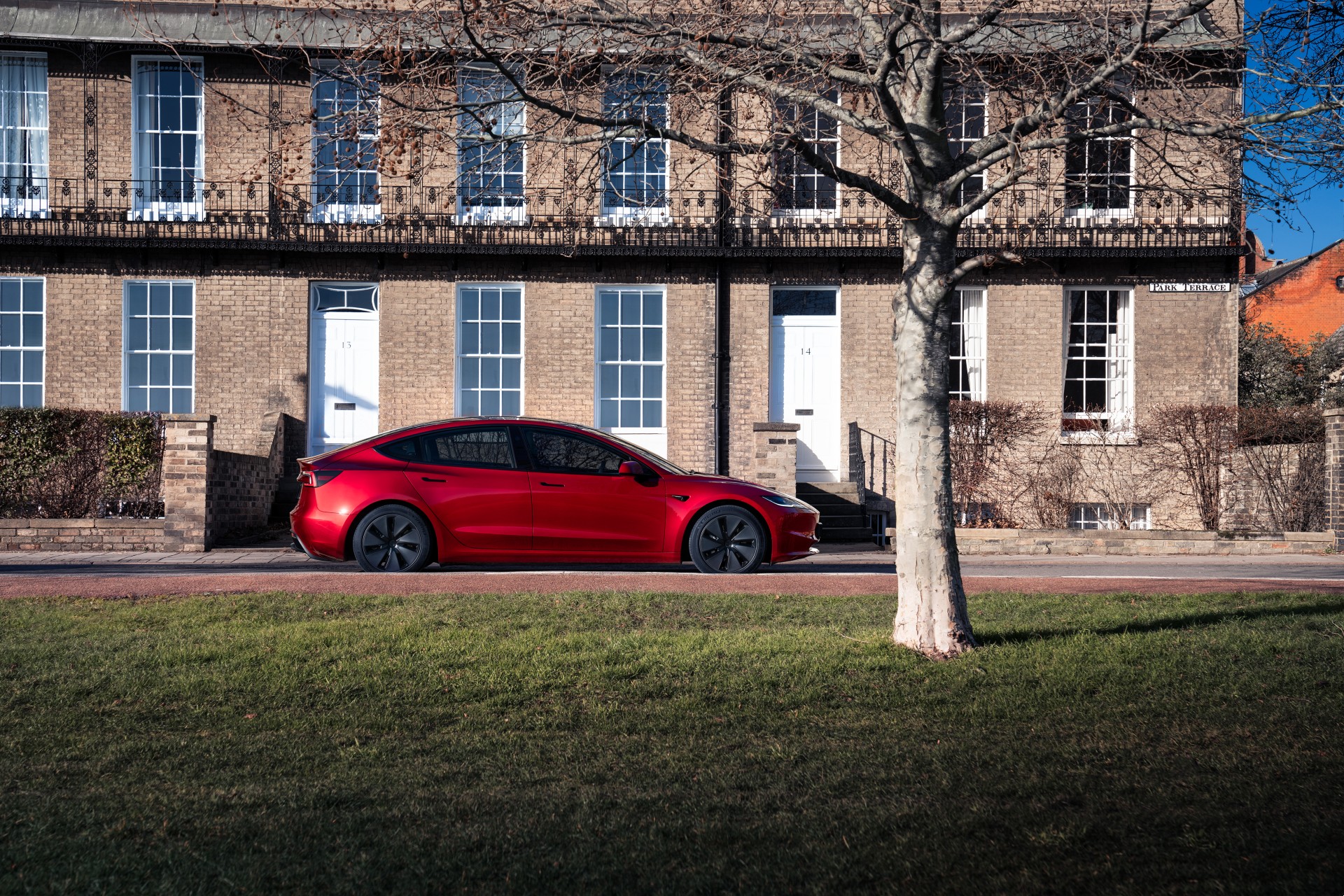
The Tesla Model 3 has won Edmunds‘ Top Rated Electric Car of 2026 award, beating out several other highly-rated and exceptional EV offerings from various manufacturers.
This is the second consecutive year the Model 3 beat out other cars like the Model Y, Audi A6 Sportback E-tron, and the BMW i5.
The car, which is Tesla’s second-best-selling vehicle behind the popular Model Y crossover, has been in the company’s lineup for nearly a decade. It offers essentially everything consumers could want from an EV, including range, a quality interior, performance, and Tesla’s Full Self-Driving suite, which is one of the best in the world.
The Tesla Model 3 has won Edmunds Top EV of 2026:
“The Tesla Model 3 might be the best value electric car you can buy, combining an Edmunds Rating of 8.1 out of 10, a starting price of $43,880, and an Edmunds-tested range of 338 miles. This is the best Model 3 yet. It is… pic.twitter.com/ARFh24nnDX
— TESLARATI (@Teslarati) February 18, 2026
The publication rated the Model 3 at an 8.1 out of 10, and with its most recent upgrades and changes, Edmunds says, “This is the best Model 3 yet.”
In its Top Rated EVs piece on its website, it said about the Model 3:
“The Tesla Model 3 might be the best value electric car you can buy, combining an Edmunds Rating of 8.1 out of 10, a starting price of $43,880, and an Edmunds-tested range of 338 miles. This is the best Model 3 yet. It is impressively well-rounded thanks to improved build quality, ride comfort, and a compelling combination of efficiency, performance, and value.”
Additionally, Jonathan Elfalan, Edmunds’ Director of Vehicle Testing, said:
“The Model 3 offers just about the perfect combination of everything — speed, range, comfort, space, tech, accessibility, and convenience. It’s a no-brainer if you want a sensible EV.”
The Model 3 is the perfect balance of performance and practicality. With the numerous advantages that an EV offers, the Model 3 also comes in at an affordable $36,990 for its Rear-Wheel Drive trim level.







